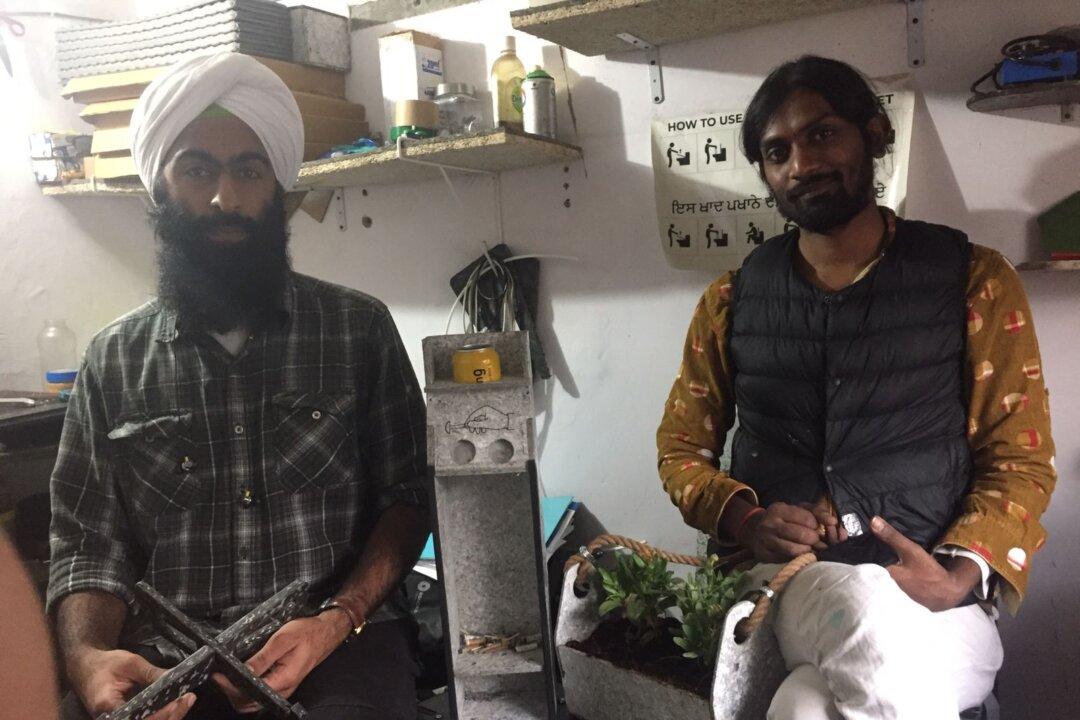NEW DELHI—A group of young social entrepreneurs is trying to solve some pertinent sanitation problems in India by building public toilets with materials that lower carbon emissions.
Ashwini Agarwal, 31, was a student at the Delhi College of Art and Commerce when he made his first public toilet in 2015 outside one of India’s largest public hospitals, the All India Institute of Medical Sciences (AIIMS). The hospital was adjacent to another big hospital, The Safdarjung, and the bus stops outside the hospitals were always crowded.





